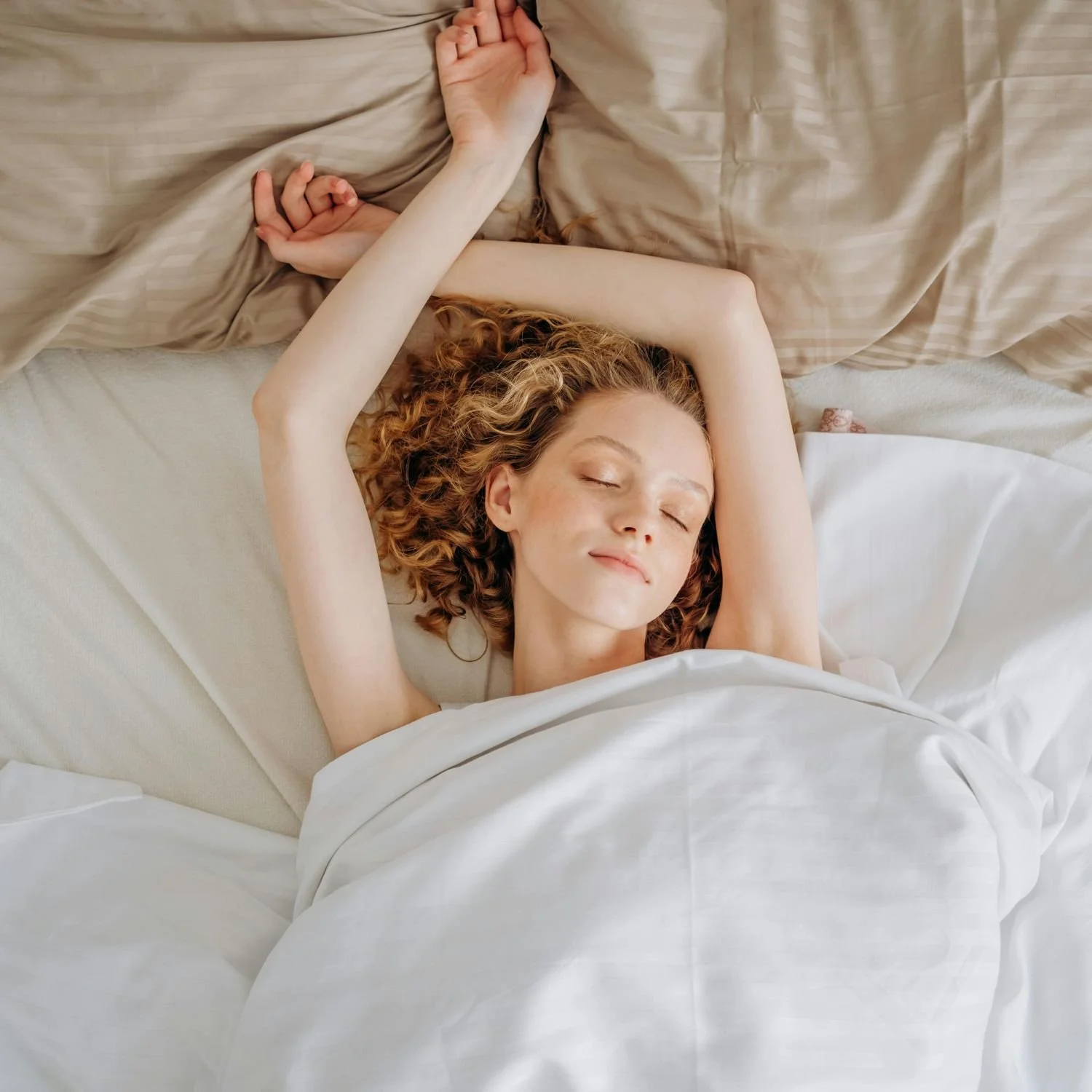How to get the Best Night's Sleep in Summer
As the temperatures rise (hopefully) and summer breezes beckon, the prospect of restful nights can often feel elusive, even for the most committed sleep enthusiasts.
Amidst the allure of longer days and balmy evenings, it's crucial to remember that sleep is not merely a luxury—it's a cornerstone of our overall health and well-being. Studies consistently demonstrate that sleep is as crucial to our health as nutrition and exercise. It supports memory, learning, and brain health by clearing waste from our minds and replenishing our bodies' energy levels. Furthermore, sleep plays a pivotal role in immune health, aiding in the fight against bacteria and viruses while facilitating the regeneration of old cells to maintain optimal function. However, as the mercury climbs, so do the hurdles to achieving a good night's rest. Warmer temperatures can disrupt our body's natural thermoregulation, making it challenging to both fall and stay asleep. Coupled with increased humidity, these conditions create an uncomfortable sleep environment, resulting in fragmented and restless slumber. The ramifications of poor sleep health extend far beyond mere tiredness, with research linking inadequate sleep to a host of health concerns, including obesity, diabetes, and cardiovascular disease. Nevertheless, attaining ‘healthy sleep’ transcends merely clocking in enough shut-eye. There are six dimensions of sleep health—duration, efficiency, timing, regularity, alertness, and quality—that collectively influence our well-being. By addressing these dimensions holistically, we can optimise our sleep habits and enhance our overall health outcomes. By acknowledging the challenges posed by warmer temperatures and adopting strategies to mitigate their impact, we can pave the way for restful nights and revitalised days, ensuring that sleep remains the cornerstone of our health and vitality.
To aid in this pursuit, here are some practical tips…
Limit Evening Exercise
Avoid vigorous exercise close to bedtime, as it can elevate your body temperature and hinder falling asleep. Instead, opt for gentle stretching or relaxation exercises.
LIMIT SCREEN TIME
Limit Screen Time: Reduce exposure to screens such as TVs, smartphones, tablets, and computers before bed, as the blue light emitted can disrupt your body's natural sleep-wake cycle.
KEEP THE ROOM COOL
Keep the Room Cool: Open windows during the day to create airflow, and use curtains to block out direct sunlight while allowing fresh air in.
Rearrange the Room
Consider moving your bed away from the window in the summer to a shadier spot, if possible.
MAGNESIUM SUPPLEMENT
Magnesium Supplement: Higher magnesium levels have been associated with improved sleep duration and reduced daytime tiredness. Consider incorporating magnesium supplements to aid in falling asleep faster and staying asleep longer.
COOL LAVENDER BATH/SCENTED ROOM
Lavender has been long associated with relaxation and sleep improvement. Taking a cool bath with lavender-scented products or using lavender essential oil in a diffuser can help calm your mind and body, preparing you for a restful night's sleep. Experts believe that melatonin, the sleep hormone, production is stimulated when the body cools down so a cool bath is a great pre-cursor for bed. The soothing aroma of lavender can also help reduce stress and anxiety, making it easier to fall and stay asleep throughout the night.
Chamomile Tea
Chamomile tea is well-known for its calming effects and is often used as a natural remedy for promoting relaxation and sleep. Consuming a cup of chamomile tea before bedtime can help soothe your nerves and induce drowsiness, facilitating easier transition into sleep.
Use Cooling Accessories
Invest in a cooling mattress pad or pillow to regulate your body temperature while you sleep. Placing a cool washcloth or bowl of ice water near your bed can also help cool your feet before bedtime.
6 Best Buys for A BETTER Sleep
AND For The Little ONes
As the summer sun intensifies, parents are faced with the challenge of ensuring their children get sufficient rest despite the rising temperatures, lighter evenings, and earlier sunrises. To tackle this challenge, we turned to Lucy Doherty, a Parent Sleep Coach and Educator, whose insights provide practical solutions tailored for babies and children.
‘When you become a parent, sleep becomes a big deal,’ asserts Lucy, emphasising the importance of grasping the fundamentals of sleep before attempting to address any issues. She likens it to driving in first gear regardless of speed, stressing the need to adapt strategies as children mature and their sleep needs evolve. Lucy highlights the varying needs between newborns, babies, and toddlers, underlining the importance of understanding these differences to establish effective bedtime routines.
‘One mistake parents often make is focusing too much on sleep and not enough on keeping kids active during the day,’ observes Lucy. She urges parents to prioritise engaging activities during waking hours, which can enhance sleep quality for the entire family.
‘Invest in blackout blinds. Complete darkness is essential,’ advises Lucy firmly. ‘Light is not our friend when trying to get youngsters to sleep, or when the sun rises so early in the morning.’ She stresses the importance of checking for any light seeping through windows or door frames.
Lucy cautions that exposure to natural sunlight increases the likelihood of an early wake-up call for everyone. ‘Dress children appropriately for the temperature. Less is more when it comes to nightwear,’ suggests Lucy. ‘Be careful not to raise their skin temperature before bedtime; instead, opt for a short, cool bath.’
She recommends investing in sleeping bags of different tog sizes and selecting breathable bedding and nightwear. Additionally, Lucy advises encouraging increased fluid intake during the daytime to maintain hydration and comfort, thus reducing the likelihood of nocturnal or early awakenings.
Follow Lucy @lucys_sleep_club or join other parents at lucyssleepclub.co.uk







